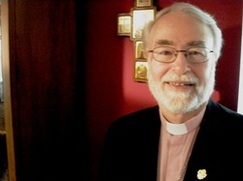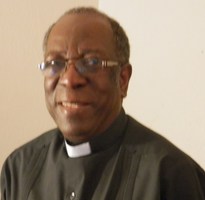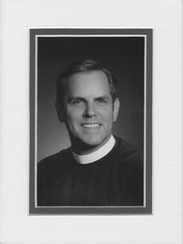 Friday, August 30, 2013 Day 236 – Isaiah 55-57, Psalm 43, Titus 3
In the conclusion of Paul’s letter to Titus today, he states in 3:14, “And let people learn to devote themselves to good works in order to meet urgent needs, so that they may not be unproductive.” Forgive my enthusiasm, but I was just blessed to conclude two days learning from the churches of our diocese dedicated to the Nehemiah Process. What exciting devotion to good works are going on in our diocese! I am humbled by the energy and enthusiasm, which reflects that which is stated in our readings for today.
Isaiah 55 begins the conclusion of this section of Isaiah, with an invitation to the heavenly banquet, and there is only one qualification given: you must be thirsty to come to the waters. There is such great energy right now with the efforts for which Daniel Ledo and Teresa Pasquale are leading the charge to reach out to the Young Adults in our community. How important it is to reach out to those who are “spiritual but not religious,” which would seem to indicate that Isaiah’s sole qualification of thirst is already there. Sometimes I can get cynical about the “spiritual but not religious” in our midst, yet it seems that Jesus was more upset with the “religious but not spiritual.” May we continue to discern the ways to provide God’s living water to those who are thirsty.
The Nehemiah presentations and discussion focused on the theme of stewardship these past days, with an opening statement from Archdeacon Hobbs that “it’s not just about the money.” Beth Shires reiterated that in her own presentation, quoting that “Stewardship is everything that we do after we say ‘I believe’.” This broader view of stewardship is echoed in Paul’s message today, as he talks about that which is “profitable” and that which is “unprofitable,” and yet he never mentions money. More than once Paul emphasizes the importance of unity. He exhorts his readers to “avoid stupid controversies, genealogies, dissensions, and quarrels about the law, for they are unprofitable and worthless” (Titus 3: 9), and tells us to “have nothing more to do with anyone who causes divisions since you know that such a person is perverted and sinful, being self-condemned” (Titus 3: 11).
Paul focuses on the urgency of our work in partnering with God on God’s mission. It points the stewardship emphasis towards the urgency of our work – and our working together. The Nehemiah churches these past two days gave great evidence to this. It was not stated this way, but the evidence of the churches when taken in conjunction with Paul’s message say this: “If you want their treasure, aim for the heart, not the pocket. Get them involved in who they are – get the community involved in who they are – and the rest will follow.”
Rev. Debra Maconaughey and the people of St. Columba didn’t even have a choir, so what did they do? They decided to put together a production of Handel’s Messiah. 55 choir members from the community later, and the production debuted to a crowd of 700! Holy Comforter was an aided congregation seemingly moving towards closing their doors, so what have they done? Through the urgent work of the people under the leadership of clergy like Fr. Rafael Garcia and lay people like Malcolm Briggs, they are now a thriving self-supporting congregation, serving their community with a day care center and home for seniors. And similar things are going on as shared in stewardship presentations by St. Anne’s, St. George’s, and Advent – all ways in which, as Isaiah states today, “My word shall not return to me empty, but it shall accomplish that which I purpose, and succeed in the thing for which I sent it” (Isaiah 55: 11).
Forgive the enthusiasm! Nah – better yet, pray that we all continue to catch it – and spread it – with our urgent work.
“Unless the eye catch fire, The God will not be seen. Unless the ear catch fire, The God will not be heard. Unless the tongue catch fire, The God will not be named. Unless the heart catch fire, The God will not be known. -- Thomas Merton
 Isaiah 52-54 Psalm 42 Titus 2Sometimes how we read the scriptures has a lot to do with when we read them. If this were Christmas or even Easter, I would certainly put my time into the Isaiah selections today. They have been used for so long as a lens to look at the ministry of Christ. The Psalm has been put to music so many times that I can hardly read it without breaking into song. I could have a lot to say about it. However, today the words that reach out to me and DEMAND attention are these:
“Tell slaves to be submissive to their masters and to give satisfaction in every respect; they are not to answer back, not to pilfer, but to show complete and perfect fidelity, so that in everything they may be an ornament to the doctrine of God our Saviour” What?!?
As I read these words we are as a nation remembering the 50th anniversary of the March on Washington and the speech of Dr. Martin Luther King, Jr., I Have a Dream! How do we read these words of Titus in light of the history of slavery in the United States of America? Some folks like to point out that slavery in the 1st Century was different from slavery in the 18th and 19th Centuries which is different again from modern day slavery. But I, for one, think slavery is slavery and it is always something to be fought against!
Somehow, every early in our history, the church started worrying about how it looked in society. Maybe I have missed the mark, but it seems quite different from how Jesus lived and taught others to be. While these verses talk about how the members of a well ordered home should live, they leave out any words for the master of this home. Where are the words for him? (And yes, it was a him!)
Let us never let the words of the Bible be for us permission to oppress others or to ignore their oppression.
 Reflection for August 28 – Day 234
Day 234
Isaiah 49-51; Psalm 41; Titus 1
A Reflection on Isaiah 49:6
“…I will make you a light to the nations –
so that all the world may be saved.”
Written nearly 2700 years ago, Isaiah’s prophetic utterance is just as significant for us today as it was when it was written. Isaiah speaks God’s eternal truth that what He gives is THE light of the world for all time.
This particular passage from Isaiah also has personal significance for me. When I entered seminary, went because I felt a call to share His light with as many people as possible during my lifetime. I naively thought that Christianity had a corner on sharing the ONE who was the “light of the world.” I thought the it was the Church that had the exclusive call to spread the Gospel to the ends of the earth. Although this has some merit, we are by far not the only ones who are called by God to be “light to the nations.” Isaiah illustrates to us that over 700 years before Jesus was born, Israel along with us as her descendents received the call to be the “light”. I have also discovered that there are many ways of living out the call to be the “light.”
Some of us do it verbally while others express the light through action. Most of us share the light through both methods as we live out our lives as an illustration that we have been touched by the light. It is a privilege which is not earned but a gift. The following contemporary and true story is just such an example.
In September of 2005, on the first day of school, Martha Cothren, a History teacher at Robinson High School in Little Rock, did something not to be forgotten. On the first day of school, with the permission of the school superintendent, the principal and the building supervisor, she removed all of the desks in her classroom. When the first period kids entered the room they discovered that there were no desks. 'Ms. Cothren, where are our desks?'
She replied, 'You can't have a desk until you tell me how you earn the right to sit at a desk.'
They thought, 'Well, maybe it's our grades.' 'No,' she said.
'Maybe it's our behavior.' She told them, 'No, it's not even your behavior.'
And so, they came and went, the first period, second period, third period. Still no desks in the classroom. Kids called their parents to tell them what was happening and by early afternoon television news crews had started gathering at the school to report about this crazy teacher who had taken all the desks out of her room.
The final period of the day came and as the puzzled students found seats on the floor of the desk-less classroom. Martha Cothren said, 'Throughout the day no one has been able to tell me just what he or she has done to earn the right to sit at the desks that are ordinarily found in this classroom. Now I am going to tell you.'
At this point, Martha Cothren went over to the door of her classroom and opened it. Twenty-seven (27) U.S. Veterans, all in uniform, walked into that classroom, each one carrying a school desk. The Vets began placing the school desks in rows, and then they would walk over and stand alongside the wall. By the time the last soldier had set the final desk in place those kids started to understand, perhaps for the first time in their lives, just how the right to sit at those desks had been earned.
Martha said, 'You didn't earn the right to sit at these desks. These heroes did it for you. They placed the desks here for you. They went halfway around the world, giving up their education and interrupting their careers and families so you could have the freedom you have. Now, it's up to you to sit in them. It is your responsibility to learn, to be good students, to be good citizens. They paid the price so that you could have the freedom to get an education. Don't ever forget it.'
By the way, this is a true story. And this teacher was awarded Veterans of Foreign Wars Teacher of the Year for the State of Arkansas in 2006. She is the daughter of a WWII POW.
God’s eternal purpose for our lives is to the His “light”. Light takes many, many forms all of which give glory to God. Let God be in you and let His “light” shine.
 Bible Challenge
Day 233
Isaiah 46-48 We continue our reading through “Second Isaiah” (Isaiah 40-55), the anonymous prophet who preached and wrote in Exile between 50-40 B.C. The Babylonian Conquest and subsequent Exile demonstrated clearly that Israel was politically and militarily weak, at least vis-à-vis the great powers of the day. It was tempting to think that Israel’s defeat at the hand of Babylonia (modern-day Iraq) could only occur because Marduk, chief of the Babylonian gods, was truly in control. While doubtless some Jews did commit apostasy, on the whole the crucible of the Exile experience sharpened and deepened Israel’s theology so that Israel came out of the Exile with a much more mature faith. It was in this period that Judaism began the transition from a national to a truly universal religion. To be a “Chosen People” did not mean being the exclusive object of God’s love; rather, to be the people of God implied a responsibility to God and to the whole human race to be a “light to the Gentiles.”
Throughout this section Second Isaiah makes much of the concept of God as creator, Lord of all history, in order to counter the despair upon reflection of Israel’s vulnerable state. Israel’s prior greatness was not their own doing any more than Babylon’s greatness was their own doing: God is in control. And now God calls forth a new instrument, Cyrus of Persia (Iran), who in Isaiah 45:1 is the only non-Israelite referred to as “messiah,” i.e., “anointed one,” in all the Old Testament. By ancient standards, Cyrus was an extremely enlightened emperor, and he allowed all peoples conquered by the Assyrians and Babylonians to return to their homelands and to practice their own religions and cultures. As such, it was easy for Second Isaiah to see Cyrus as God’s instrument in history.
Chapter 46 opens with sarcastic references to Bel (Bel-Marduk) and Nebo (son of Marduk), “gods” of Babylon who are so powerless that they have to be picked up, turned horizontal as if bowed down, and strapped to donkeys and camels to be carried about. All the gods of Babylon and of the nations are mere powerless idols. Yet while these idols have to be carried about, it is God who has carried Israel throughout history, even to this time of suffering and Exile, and it is God who will continue to bear Israel in His arms beyond the Exile.
Chapter 47 speaks of Babylon’s imminent doom. When a nation, be it Israel or Babylon, is called “virgin daughter,” it is simply a metaphor for a nation having been (up to that point) undefeated. Babylon’s defeat is at hand, Second Isaiah is sure. He observes Cyrus’ advances to the north and west of Babylonia, so he knows that Babylonia’s fall is only a matter of time.
Chapter 48 is a sort of summary of this section of Second Isaiah, chapters 40-48. The prophet points out that God declares, through the mouth of the prophet, these great events before they occur, hence the people will know that these things are God’s doing and are not mere chances of history.
Psalm 40 The poet cannot seem to make up his mind. In the initial verses of this psalm he seems to be praising God for having pulled him through hard times; in the final verses (15-19) he is hoping for some future deliverance from God. Verses 7-8 reflect a tension in many parts of the Old Testament, particularly in the prophetic writings. Some Old Testament writers, notably those of the Torah (Pentateuch), are certain that the ritual sacrifices are directly commanded by God. Here, however, a more jaundiced view is taken of the sacrifices. Obedience to God seems to lie elsewhere.
II Timothy 4 This concluding chapter of the Second Letter to Timothy has some of the most quotable quotes of the New Testament along with several mundane greetings and “housekeeping” matters. “Preach the word; be urgent in season and out of season.” “I have fought the good fight, I have finished the race, I have kept the faith.” Oh, and bring my cloak, and my books, and other stuff. Try to come before winter when sailing is impossible; I don’t want to have to wait until spring to get my things. We think of Paul as this great apostle and theologian, and rightly so, but I find these humanizing elements in his letters to be very endearing.
Frank J. Corbishley
The Episcopal Church Center at the University of Miami
 Reflection Day 232
Isaiah 43-45; Psalm 39; 2 Timothy 3
By The Rev. Mark Andrew Jones, BSG
Recently, I anointed a childhood friend who is like a brother to me. We embraced for perhaps the last time as he is dying of cancer. Last night our son learned of the death of a classmate. Tragedy is real and death can strike at any age. “Lord, let me know my end, and what is the measure of my days; let me know how fleeting my life is” (Psalm 39:4).
Sometimes we might tremble, but then a soft whisper rises up within my heart. In the stillness of contemplation I hear the Lord say, “Do not fear, for I have redeemed you; I have called you by name, you are mine. … Because you are precious in my sight, and honored, and I love you” (Isaiah 43:1b, 4).
You do a new thing, but many do not see or accept. Still, I will rely on the Word of God. I shall not fear or be afraid. I know that people can “be lovers of themselves, lovers of money, boasters, arrogant, abusive, disobedient to their parents, ungrateful, unholy, inhuman, implacable, slanderers, profligates, brutes, haters of good, treacherous, reckless, swollen with conceit, lovers of pleasure rather than lovers of God, holding to the outward form of godliness but denying its power” (2 Timothy 3:2-5). Still, I will rely on the Word of God. I shall not fear or be afraid; for we but need to “turn to [God] and be saved” (Isaiah 45:22).
 The Bible Challenge, Day 229: Isaiah 37-39, Psalm 37:19-42 and 2 Timothy 1
In today’s readings Hezekiah finds himself in fearful places. The army of his arrogant enemy King Sennacherib is threatening to obliterate his nation Judah and its holy city Jerusalem. The field commander of Sennacherib’s army has belittled the Lord God of Abraham, pointing out that the gods of other neighboring nations have done them no good – therefore, he seems to assume, gods are worthless. Furthermore Hezekiah’s army is puny. So what does Hezekiah do about his impending disaster? As would any of us, he prays fervently, “Save me!” Hezekiah reminds God of the outrage that his enemy blatantly taunts the Holy One! And God saves.
Then Hezekiah becomes deathly ill. So what does Hezekiah do about his impending disaster? As would any of us, he prays fervently, and he sobs. God restores the king to health, and Hezekiah responds with praise. I do note, however, Hezekiah’s little reminder to God that the dead can’t thank or praise their Father in Heaven. This is a bargain chip found often in the psalms – e.g., “can the dust praise you?” [Psalm 30:10, BCP Psalter]. Hezekiah is grateful for his restoration, but he has not received a new spirit. He continues in his inclination toward pride and self-satisfaction. He even shows no compassion for the misery to befall his own children
The author of Second Timothy lifts up a very different way of thinking for followers of Jesus. Unlike Hezekiah, Timothy’s grandmother Lois and his mother Eunice care for their offspring and give Timothy the precious gift of faith. In Henry Ossawa Tanner’s painting Christ Learning to Read [Find at this link: http://www.the-athenaeum.org/art/detail.php?ID=45485 .] we see a faithful Jewish mother (Mary) teaching her child to read a scroll of Holy Scripture. I imagine that Lois and Eunice did the same for Timothy, and that they shared Bible stories in daily life, punctuated each day with prayer, and took Timothy to gather with others in the faith community once he was old enough to participate. The letter urges Timothy to appreciate the sacred trust he has received and to respond by working to spread the Good News of Christ Jesus as widely as possible.
A faithful and happy life involves caring for each other in word and deed. We live in a world full of people like Hezekiah. Our opportunity is to respond to the limping world person by person. What can you do to bring light to someone today? Will you do it?
 Isaiah 34-36
Psalm 37:1-18
I Timothy 6
In this sixth chapter of Paul’s letter to Timothy, we are
called to move to another level, to discover things that really matter. In verse10, he said “the love of money is the root of all evil things…and further in verse 11, “but you man of God must shun all this and pursue justice, piety, fidelity, love, fortitude and gentleness.”
Such advice from the apostle sheds light on the hope and assurance given
to those who fear the Lord and practice justice so well expressed in Psalm 37,
“Better is the little which the righteous has than the great wealth of the
wicked” (verse 16.)
How different is this message from today’s popular “gospel of
prosperity.” Indeed, God is in charge, God gives what the world cannot give, which is “peace” in the midst of turmoil, joy in the face of suffering and patience to endure, knowing that
“change will come” in God’s way.
Strange are God’s ways. They defy our logic. Blind men’s eyes shall be opened…water springs up in
the wilderness and torrents flow in dry land (Isaiah
35:5-6.)
The Venerable J. Fritz Bazin, D. Min.
Archdeacon for Immigration and Social Justice Ministries
Diocese of Southeast Florida
 Reflection for August 21, Day 227
Isaiah 31-33, Psalm 36, I Timothy 5
When I was an undergraduate studying Political Science I took a
course on US Foreign Policy that required us to read a series of books. The title of one book –“Real Security”—has always stayed with me. The author raised the fundamental question: in a dangerous world, where we are surrounded by threats, what truly constitutes our national security?
This book and its title came back to me as I read today’s chapters from Isaiah. The people of God are surrounded by mortal threats (not much has changed in 3,000
years). Egypt, a potential ally or enemy, to the west and Assyria, the rising power in the east, are in
today’s political language existential threats to Judah and Israel. Through his prophetic
writings, Isaiah answers the fundamental question of what constitutes national
security with a resoundingly clear answer: trust in God’s power and
protection. Isaiah reminds God’s people that establishing a reign of justice, peace and security is the
work of God’s Spirit (Isaiah 32:15ff). The challenge, as always, for God‘s people is to be God- directed, not self-directed, to be shaped and led by God’s Spirit and not by the ways of the
world or the anxieties of our own lives. This requires, in my experience, huge amounts of grace and daily faithfulness. Time to get back on our knees!
In chapter 5 of I Timothy, Paul addresses the issue of how we treat and honor one another in the Body of Christ, and he hones in particularly on the status of widows. We understand that widows were particularly vulnerable. Their capacity to support themselves was extremely limited and they were bereft of the basic protection and safety provided by a husband.
Paul reminds relatives of their responsibilities to love and care for
family members in need, he encourages younger widows to remarry and form new
families, and even establishes some basic guidelines – the age of 60—as an
important threshold for providing special care. The larger issue that he is
touching on is how to be faithful to Jesus’ commandment to love one another in
ways that are effective, and compassionate, but do not enable unhealthy or
unholy behavior. As a priest, I find this to be a daily struggle as I seek to respond with love to the
“widows,” which is to say the marginalized and vulnerable ones in my community,
who show up at my doorstep. There is, as Paul instructs Timothy, a place for holy discernment and
guidelines as the Church seeks to be faithful to the mind of heart of Christ. This is hard pastoral work, then and now. But it is the work we called to as Body of Christ.
Time to get back on our knees!
Andrew Sherman
 I remember so many years ago, when my oldest daughter Corbi was about 3 or 4 years old and she decided after watching me shave, that she wanted to do it. So I took the opportunity for her to follow my example. Therefore, I gave her a razor, with the plastic part still intact over the razor blade so she wouldn’t cut herself.
Then I asked her to follow my lead. First, we wet our faces with water, then we both put the shaving cream on, then we both grab our razors and then began to shave, every so often rinsing our razors with water. Once we finished, we rinsed our faces and dried them. I still remember her smiling and glancing over at me every so often when she was shaving. She was so excited that she could do what her father was doing. She wanted to follow my example. My heart just melted. Corbi was so eager to want to learn from her daddy and follow his example.
This reminds me of one of our passages today from 1 Timothy 4. Paul, a spiritual father, is writing to his spiritual son, Timothy about the importance of following his example. Paul tells Timothy about some important biblical truths in which he is to pass on to others. First, whatever God has created is good (v4). Secondly, godliness has value for all things (v8). Thirdly, we put our hope in the living God who is the savior of all men (v10). Fourthly, be an example for all believers in speech, in life, in love, in faith and in purity (v12). Fifthly, devote yourself to public reading or scripture (v13). Sixthly, do not neglect your spiritual gift (v14).
Paul summarizes this by saying watch your life and doctrine closely……..because you will save both yourself and your hearers (v16).
Paul saw that it was so important to pass these truths on that he wrote a letter to Timothy. The church has seen it fit to be part of the canon since the patristic times. We as the body of Christ need to take the lead and follow Paul’s lead and pass on biblical truths to others. When was the last time you passed on spiritual truths to your children and grandchildren?

Daily Blog – Day 223, Isaiah 22-24, Psalm 33, 1Timothy 2
Reflection I
With our chapters from Isaiah we hear troublesome words from oracles capturing apocalyptic imagery of final destruction and devastation. We hear words of “doom and gloom.” The message is clear: Behold, the Lord will lay waste the earth and make it desolate, and he will twist its surface and scatter its inhabitants (Is. 24:1). Such imagery is not delegated exclusively to the Book of Revelations as we are reminded that we are not in control of this world and that the Lord himself judges and lays to waste the efforts of humankind. Remember, we recently read Ecclesiastes and had an enormous lesson on “vanity.” All the negativity that is manifested results in asking what can we do to be saved from such devastation? Where is our hope?
Laying out the details of our ruin, which are the direct result of a multitude of inappropriate behaviors, must be viewed as fueling God’s judgment and condemnation. Isaiah wants us to recognize our situation and allow it to serve as a catalyst to transform our ways. In spite of “doom and gloom” Isaiah contrasts our situation through the one and only source of hope – trusting in the love of our God and Creator. It is about building and maintaining a relationship of trust, faith, and actions as the only and appropriate response to God’s abundant grace and love. As Isaiah reveals:
The angel of the Lord encamps around those
who fear him, and delivers them.
O taste and see, that the Lord is good!
Happy is the man who takes refuge in him. (Is. 34:7-8)
Our reading from Paul with First Timothy provides helpful advice for such living. The behaviors and actions he promotes demonstrate a life lived in “godliness and reverence,” two key words in Paul’s letters. As such all life then becomes an act of worship. Since all life is lived in the presence of God, then every person moving throughout this world is made to be a temple of the living God. One never forgets the holiness of God and the dignity of all persons. William Barclay says that “these two great qualities are regal qualities which every man must covet and for which every man must pray.” As such we can sing with the Psalmist:
Our soul waits for the Lord; he is our help and our shield.
Yea, our heart is glad in him, because we trust in his holy name.
Let they steadfast love, O Lord, be upon us, even as we hope in thee.
(Psalm 33:20-22)
Reflection 2
My spirit will not allow me to end this reflection without addressing an issue raised by Paul with the verses of I Timothy 2: 8-15: Women in the Church. Therefore, I offer this second reflection with a focus on these verses.
These verses cannot be read outside its historical context since its meaning springs entirely from the situation in which it was written. First, it is written from a Jewish background, within a culture that gave the most respect to women’s role within the family and home despite the fact that it is officially a low position. By Jewish law she was not a person but a thing; entirely at the disposal of her father or husband. She was forbidden to learn the law and she had no part in synagogue worship outside of listening (not to be seen) from a gallery. She was not even permitted to teach in a school. Women, slaves and children were classed together.
Second, these verses are written against a Greek background which made things extremely difficult for women. The role of women in Greek religion was very low, basically relegated to prostitution. The respectable Greek woman led a confined life, living in her own quarters, not appearing at meals, never in public alone, and never seen at a public assembly. In fact, in Greek towns where Christian women took an active speaking and work role, the Church inevitably gained a reputation of being a resort for loose women.
In contrast to attitudes influenced by the stories that woman was created second and that it was a woman who fell to the seduction of the serpent tempter, are teachings of Mary of Nazareth who bore and trained the child Jesus. In addition were numerous stories of significant contributions by women: It was Mary Magdalene who was first to see the risen Lord; it was a few of the women among all the disciples who stood at the foot of the cross; it was Priscilla with her husband Aquila who were valued teachers in the Early Church, leading Apollos to the knowledge of truth in Christ (Acts); Eudoia and Syntyche, in spite of their quarrel, were women who labored in the Gospel (Philippians); and Paul held Eunice and Lois in high honor (2 Timothy) as well as many other women who are named and honored (Romans).
Bible scholar William Barclay states that “All things in this chapter are temporary regulations to meet a given situation.” If we want Paul’s true and permanent view on the matter of the role of women, we get it from Galatians 3:28: “There is neither Jew nor Greek, there is neither slave nor free, there is neither male nor female: for you are all one in Jesus Christ.” In Christ the differences of place and honor and function within the church are all wiped out. Barclay concludes that our passage ends with the real truth exposed as it reveals that women will be saved in child-bearing. Not only may this be a reference to the supreme role of Mary as “the Christ-bearer,” a model of the significant role of women in salvation history, but on a more simple level shows motherhood to be her crown. The role of nurturing, protecting and guiding, caring and giving, along with being a spiritual model is manifested as her God-given purpose.
The Very Rev. Dr. William L. Stomski,
Chaplain and Sacred Studies Educator, Saint Joseph’s Episcopal School, Boynton Beach
Dean of the Diocesan School for Christian Studies
|










 RSS Feed
RSS Feed